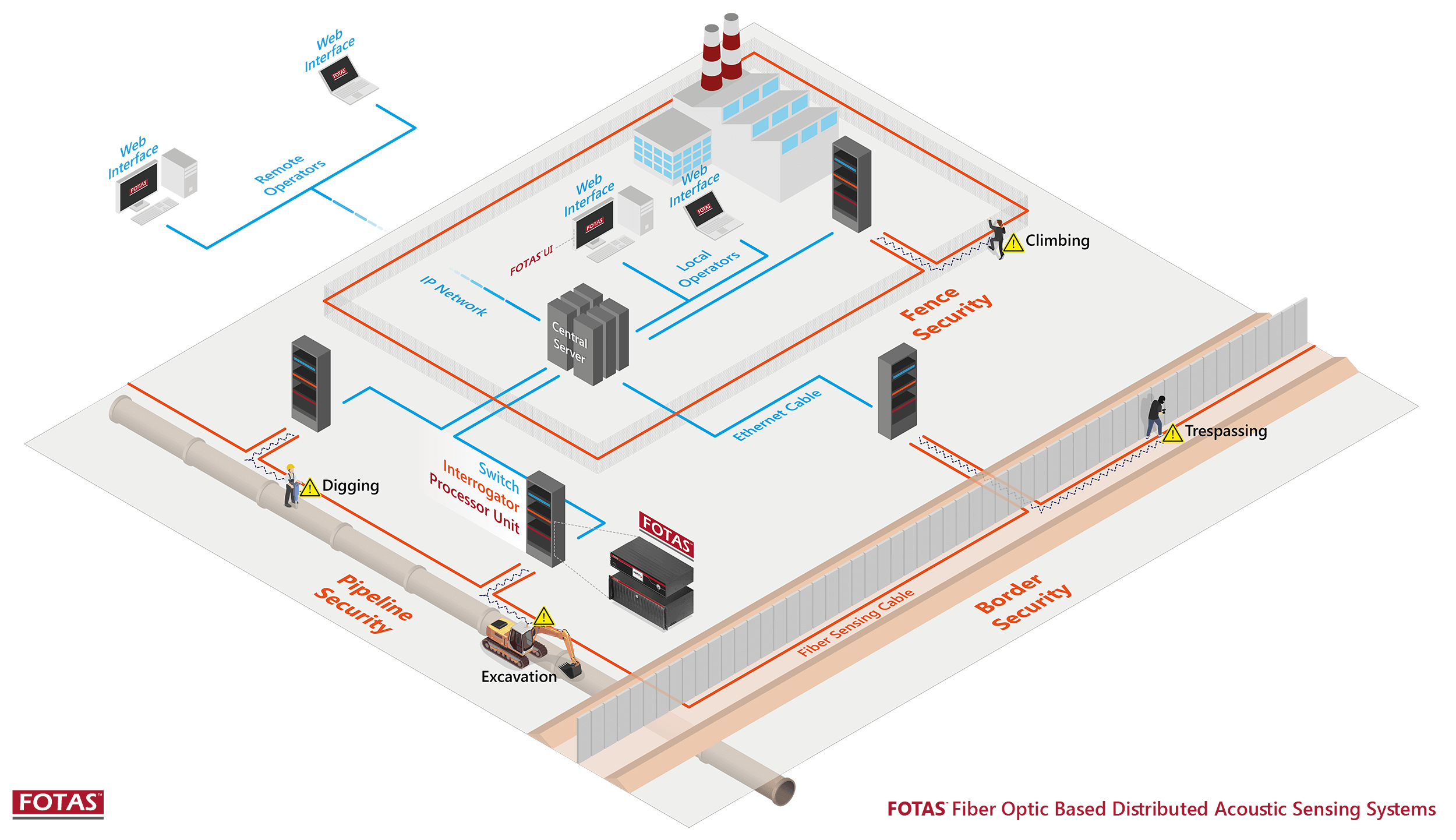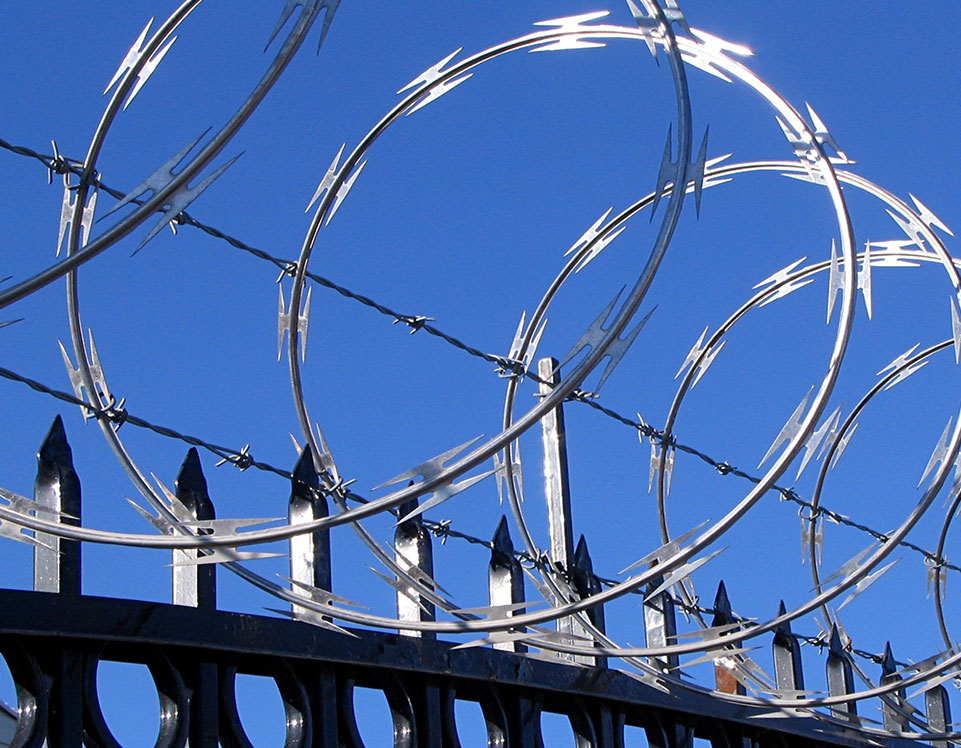The Role of Fiber Security in Enhancing Your Cyber and On-Site Security Network
The Role of Fiber Security in Enhancing Your Cyber and On-Site Security Network
Blog Article
Secure Your Property With Reputable Fiber Optic Security Solutions
In an era where safety and security dangers are progressively innovative, the demand for reliable defense remedies is extremely important. Fiber optic security systems stand out by offering extraordinary dependability and performance, leveraging sophisticated light transmission innovation to improve surveillance capabilities. security fibers. Understanding the intricacies of fiber optic security can illuminate the path to safeguarding your property more effectively.
Advantages of Fiber Optic Protection
Fiber optic protection remedies use a variety of advantages that make them increasingly essential in today's electronic landscape. One of the most substantial advantages is their remarkable bandwidth capacity, which enables the transmission of big amounts of data over fars away without significant signal destruction. This ability is especially advantageous for protection systems that count on high-definition video clip surveillance and real-time monitoring.
Furthermore, fiber optic cable televisions are naturally a lot more secure than typical copper electrical wiring. They are unsusceptible to electromagnetic disturbance, making them less at risk to hacking or eavesdropping. This improved security is critical for securing sensitive information and maintaining the honesty of surveillance systems.
In addition, fiber optics are extra resilient and immune to environmental variables, such as moisture and temperature level fluctuations, making sure lasting dependability and lowered maintenance expenses. The light-weight nature of fiber optic cable televisions additionally simplifies setup procedures, permitting better adaptability in system design.
Just How Fiber Optic Systems Work
In modern safety and security applications, the operation of fiber optic systems depends on the concepts of light transmission via adaptable glass or plastic fibers. These fibers are made to carry light signals over lengthy ranges with marginal loss, making them excellent for transmitting data associated with security monitoring. The core of the fiber, bordered by a cladding product, ensures that light signals remain contained within the core through a phenomenon called complete inner representation.
When incorporated right into security systems, fiber optic wires can transfer data from numerous sensing units, such as cams, movement detectors, and alarms, to a main tracking station. The high bandwidth capability of fiber optics allows for the transmission of huge amounts of information all at once, making it possible for real-time monitoring and prompt feedback to possible dangers.

Kinds Of Fiber Optic Security Solutions
Numerous sorts of fiber optic safety options have arised to enhance surveillance and defense across different atmospheres. One prominent service is fiber optic perimeter intrusion discovery systems (PIDS), developed to keep an eye on and safeguard building limits via the discovery of resonances and disruptions along fiber optic cables. These systems provide real-time official site signals, enabling timely reactions to unauthorized gain access to efforts.
An additional reliable remedy is fiber optic video surveillance. This modern technology leverages high-def cameras linked through fiber optic wires to transfer video data over cross countries without substantial loss of quality. This arrangement is specifically helpful in large locations, such as flight terminals and industrial sites, where typical copper cords may falter.
Furthermore, fiber optic sensing units are progressively utilized for environmental surveillance, discovering changes in temperature level, pressure, or acoustic signals that can show safety and security violations or unsafe conditions. These sensors offer high sensitivity and precision, making them optimal for crucial facilities protection.

Setup and Upkeep Tips
Efficient setup and maintenance of fiber optic safety remedies are vital for ensuring their optimum efficiency and longevity. To start with, it is necessary to plan the installation thoroughly, thinking about the design of the residential or commercial property and identifying possible susceptabilities. Fiber optic cable televisions must be transmitted securely, avoiding sharp bends or twists that might jeopardize their stability. Utilize professional-grade adapters and enclosures to make certain durable connections and defense from environmental aspects.
Throughout installation, it is advisable to carry out comprehensive screening of the system to confirm that all components are operating properly. Regular upkeep checks should be scheduled to inspect the fiber optic cable televisions for any signs of wear or damage, along with to make certain that links continue to be safe. Cleaning up the ports periodically is likewise crucial to protect against signal loss because of dirt or particles.
Moreover, keeping an updated inventory of set up parts and their specifications can facilitate much easier troubleshooting and upgrades. By adhering to these setup and upkeep suggestions, residential property proprietors can optimize the effectiveness of their fiber optic safety and security services, making sure a dependable protection against prospective Home Page dangers.
Comparing Prices and Effectiveness
When assessing fiber optic safety and security remedies, recognizing the balance between prices and effectiveness ends up being extremely important (security fibers). Organizations must take into you could try here consideration the ahead of time investment, recurring maintenance expenses, and the long-term worth these systems give. While fiber optic systems may call for a higher initial setup expense compared to traditional copper circuitry, their durability and decreased sensitivity to electro-magnetic interference commonly translate to lower maintenance costs over time
Effectiveness is an additional vital factor; fiber optic safety and security systems provide boosted data transmission rates and improved reliability. They can cover larger ranges without signal degradation, making them excellent for expansive properties or remote places. The high data transfer capacity sustains sophisticated security applications, such as high-def video clip monitoring and real-time surveillance, which are important for detailed safety administration.
Ultimately, the choice between expense and efficiency ought to be led by certain protection requirements and risk assessments. Organizations needs to analyze their unique needs, thinking about variables like building size, safety and security threats, and technological developments. By carrying out an extensive cost-benefit analysis, stakeholders can make informed decisions that line up with their safety and security purposes while making sure a sound investment in fiber optic technology.
Verdict
Finally, fiber optic safety and security solutions use considerable advantages in regards to efficiency, integrity, and immunity to ecological disturbances. These systems boost surveillance capacities and perimeter security, making them an efficient selection for thorough defense. Although first setup prices may be greater, the long-term benefits, consisting of lowered upkeep and superior functionality, validate the financial investment. Ultimately, the fostering of fiber optic technology represents a forward-thinking strategy to safeguarding homes versus developing safety and security threats.
Report this page